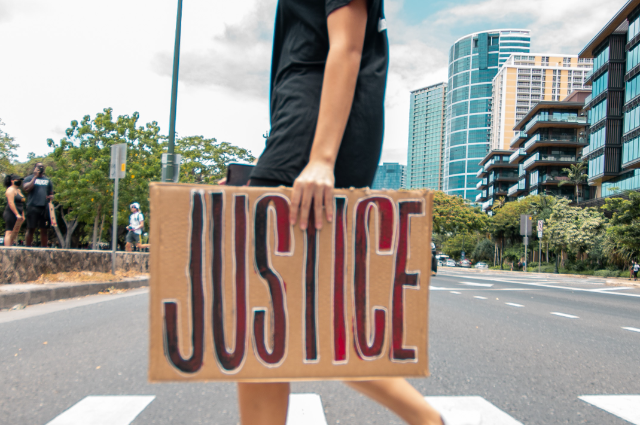
Photo by Thomas Ashlock on Unsplash
Introduction:
Justice, a concept as old as human civilization itself, embodies the fundamental principles of fairness, equality, and righteousness. The idea of justice has been a subject of philosophical debate, societal reform, and legal systems throughout history. As an individual shaped by my own experiences and values, my idea of justice transcends the mere dispensation of punishment. It encompasses a broader vision of creating a society that prioritizes equality, empathy, and inclusivity. The problem of justice in today’s world lies in the unequal distribution of resources, opportunities, and treatment based on factors such as wealth, power, and systematic biases. Justice is an issue today due to persistent systemic inequalities, socio-economic disparities, and the need for equitable treatment and protection of human rights for all. In this essay, I will explore the various dimensions of justice and shed light on how we can foster a just society.
The Pursuit of Equality:
At the heart of my idea of justice lies the pursuit of equality. True justice can only be achieved when every individual, regardless of their social status, gender, race, or economic background, is treated with fairness and respect. Equality demands that the law be blind to these external factors and instead focuses on the intrinsic worth and dignity of each person. It requires creating a level playing field where everyone has access to the same opportunities and benefits.
To attain such a society, it is imperative to address systemic biases and discrimination that hinder equality. By challenging prejudiced attitudes, dismantling structural barriers, and promoting affirmative action, we can begin to bridge the gaps that divide us. Education and awareness play crucial roles in this process, fostering empathy and understanding among individuals from diverse backgrounds. Through collective inequality and build a just society that values and empowers every individual.
Restorative Justice:
While traditional justice systems often emphasize retribution and punishment, my idea of justice embraces the concept of restorative justice. Rather than focusing solely on the punitive aspects of law, restorative justice seeks to repair the harm caused by crimes or conflicts. It recognizes the importance of reconciliation, healing, and the restoration of relationships within communities.
Restorative justice empowers both victims and offenders to actively participate in the resolution process, allowing them to express their emotions, acknowledge the consequences of their actions, and work towards meaningful resolutions. By promoting dialogue, understanding, and accountability, restorative justice not only addresses the immediate harm but also addresses the root causes of criminal behavior, paving the way for personal growth and social reintegration.
Empathy and Compassion:
Empathy lies at the core of a just society. My idea of justice involves fostering a culture of empathy and compassion, where individuals recognize and respond to the suffering of others. empathy compels us to step into someone else’s shoes, understand their struggles, and act in ways that uplift and support them. It breaks down the barriers of indifference and engenders a society that values the well-being of all its members.
The quote, “Empathy is seeing with the eyes of another, listening with the ears of another, a feeling with the heart of another,” is attributed to Alfred Adler, an Austrian psychiatrist and psychotherapist. Alfred Adler’s profound statement encapsulates the essence of empathy as a profound connection to others. It suggests that empathy is not simply observing or sympathizing from a distance, but rather actively immersing oneself in the experiences of another. It involves a multifaceted understanding, where we look beyond our perspective and perceive the world through someone else’s eyes, truly listening to their thoughts and emotion, and allowing their feelings to resonate within our hearts. This comprehensive engagement enables us to bridge the gaps of understanding, cultivate compassion, and build meaningful relationships, ultimately fostering a deep sense of connection and unity among individuals.
To cultivate empathy, we must promote dialogue, foster cross-cultural understanding, and encourage active listening. By engaging in open conversations, embracing diversity, and celebrating our shared humanity, we can bridge the empathy gap that often perpetuates injustice. Empathy should not be limited to personal interactions alone; it should extend to policy-making, governance, and institutions, ensuring that the needs of the most vulnerable are prioritized and protected.
Conclusion:
In my conclusion, my idea of justice encompasses the principles of equality, restorative justice, and empathy. Justice is the cornerstone of a fair equitable society, where the rights and dignity of all individuals are protected and upheld. It calls for a society where all individuals are treated with fairness, where conflicts are resolved through dialogue and understanding, and where empathy permeates every aspect of our lives. Achieving this vision of justice requires a collective effort, societal reforms, and a shift in our attitudes and behaviors. Let us strive together to build a just world, where every person has the opportunity to flourish and where the inherent dignity of every human being is upheld.
